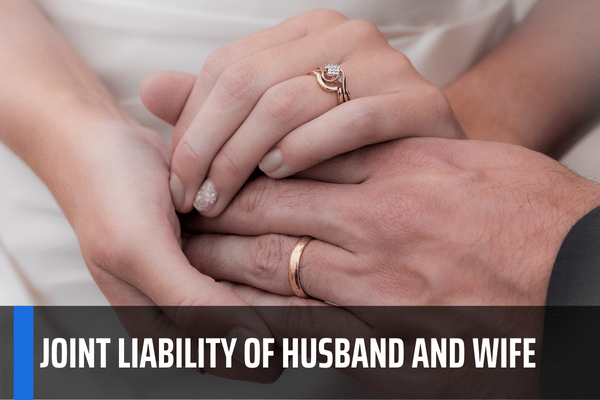Vietnam: Is the husband obligated to pay the debt that his wife has defrauded? Do spouses have the right to represent each other when making transactions?
Vietnam: Is the husband obligated to pay the debt that his wife has defrauded?
Pursuant to Article 27 of the Law on Marriage and Family 2014 stipulates as follows:
Joint liability of husband and wife
1. Husband and wife shall take joint liability for transactions prescribed in Clause 1, Article 30, which are made by either of them, or other transactions made in conformity with provisions on representation of Articles 24, 25 and 26, of this Law.
2. Husband and wife shall take joint liability for the obligations prescribed in Article of this Law.
Article 30 of the Law on Marriage and Family 2014 stipulates as follows:
Rights and obligations of husband and wife to meet their family’s essential needs
1. Husband and wife have the right and obligation to make transactions to meet their family’s essential needs.
2. When husband and wife have no common property or their common property is not enough to meet their family’s essential needs, they shall contribute their separate property according to their financial capacity.
Article 37 of the Law on Marriage and Family 2014 stipulates as follows:
Common property obligations of husband and wife
Husband and wife have the following common property obligations:
1. Obligations arising from transactions established under their agreement, obligations to pay damages under their joint liability as prescribed by law;
2. Obligations performed by a spouse in order to meet the family’s essential needs;
3. Obligations arising from the possession, use and disposition of common property;
4. Obligations arising from the use of separate property for maintaining and developing common property or for generating major incomes for the family;
5. Obligations to pay damages caused by their children as prescribed by the Civil Code;
6. Other obligations as prescribed by relevant laws.
According to the above provisions, husband and wife will have the right and obligation to perform transactions to meet the essential needs of their family. And with transactions that meet the essential needs of the family, the husband and wife will have joint obligations about the property.
This means that if the wife or husband makes a transaction and the purpose of the transaction is to meet the essential needs of the family, both husband and wife will be jointly obliged to repay the debt with the transaction. spouse has done.
For example: The wife borrows money to cover the family's daily living expenses, in this case, the husband will also be obliged to repay the debt that the wife has borrowed.
Clause 1, Article 117 of the 2015 Civil Code provides as follows:
Conditions for effective civil transactions
1. A civil transaction shall be effective when it satisfies all of the following conditions:
a) Participants in the transaction have legal personality and/or legal capacity in conformity with such transaction;
b) Participants in the transaction act entirely voluntarily;
c) The purpose and contents of the transaction are not contrary to the law and/or social ethics.
Accordingly, one of the conditions for a civil transaction to take effect is that the purpose and content of the civil transaction do not violate the prohibition of the law and are not contrary to social ethics.
Here, the wife commits fraud, which means that the transaction made by the wife is not in accordance with the law.
Thus, in case the wife commits fraud with another person, the husband will not be obliged to repay the debt for the fraudulent act that the wife has performed.

Vietnam: Is the husband obligated to pay the debt that his wife has defrauded? Do spouses have the right to represent each other when making transactions? (Image from the Internet)
Do spouses have the right to represent each other when making transactions in Vietnam?
Pursuant to Article 24 of the Law on Marriage and Family 2014 stipulates as follows:
Bases for determination of representation between husband and wife
1. The representation between husband and wife in establishing, making and terminating transactions shall be determined in accordance with this Law, the Civil Code and other relevant laws.
2. Husband and wife may authorize each other to establish, make or terminate transactions which, as prescribed by this Law, the Civil Code and other relevant laws, shall be agreed upon by both spouses.
3. A spouse may represent the other when the latter loses his/her civil act capacity while the former is eligible to act as the guardian or when the latter has his/her civil act capacity restricted while the former is designated by a court to act as the at-law representative of his her spouse, unless the latter is required by law to perform by himself/herself related rights and obligations.
When a spouse loses his/her civil act capacity and the other requests a court to settle divorce, the court shall designate another person to represent the partner who has lost his/her civil act capacity for settlement of divorce in accordance with the Civil Code’s provisions on guardianship.
Accordingly, husband and wife can authorize each other to perform transactions that require the consent of both spouses.
In case a spouse loses civil act capacity and the other is eligible to act as a guardian or one party has limited civil act capacity, the Court appoints the other to act as the representative under the law. the law for the other person may represent the transaction.
Vietnam: Do spouses have the right to represent each other in business relationships?
Pursuant to Article 25 of the Law on Marriage and Family 2014 stipulates as follows:
Representation between husband and wife in business relations
1. When husband and wife jointly run a business, unless otherwise agreed by the husband and wife before taking part in the business relation or otherwise prescribed by this Law and other relevant laws, the spouse directly involved in the business relation is the lawful representative of the other in that relation.
2. In case husband and wife put their common property into business activities, Article of this Law shall apply.
Thus, when husband and wife do business together, the husband and wife will be each other's legal representatives in that business relationship, unless otherwise provided for by law or otherwise agreed upon by the husband and wife.
LawNet
